Making a global impact one project at a time
Led by PLuS Alliance fellows and researchers, these collaborative, seed-funded research projects focus on creating a sustainable future for everyone.
Led by PLuS Alliance fellows and researchers, these collaborative, seed-funded research projects focus on creating a sustainable future for everyone.

Infection of the clear layer of the front of the eye, the cornea, leads to scarring and vision loss exacerbated by robust inflammation. Understanding of some of these mechanisms has been gained from animal and cell based studies, but the specialized tools to verify and look for novel pathways in patients have slowly been developed. The eye is an easily accessible tissue, however the interface with the outside environment and the small volume samples that can be collected pose difficulties. Innovative technologies have allowed the team to combine specialized techniques of small sample processing with powerful analytical platforms to maximise this information. In this study both tear and serum molecules will be investigated as potential prognostic biomarkers and novel inflammatory pathway predictors in corneal infection. Better understanding of the inflammatory mechanisms in corneal infection is key to limiting vision loss and improving quality of life.
Dr Nicole Carnt |
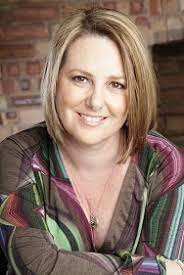
UNSW | Global Health
Nicole Carnt graduated from UNSW in Optometry in 1989 and worked in private practice before joining the Brien Holden Vision Institute in Sydney in 1999. She completed a PhD on Epidemiology of CL Related Infection and Inflammation in 2012. Also that year she was awarded a prestigious NHMRC CJ Martin Biomedical Research Fellowship conducted at Moorfields Eye Hospital, London and University of Sydney. Her primary area of research is the immune response to corneal infection.

UNSW • Global Health
Nicole Carnt graduated from UNSW in Optometry in 1989 and worked in private practice before joining the Brien Holden Vision Institute in Sydney in 1999. She completed a PhD on Epidemiology of CL Related Infection and Inflammation in 2012. Also that year she was awarded a prestigious NHMRC CJ Martin Biomedical Research Fellowship conducted at Moorfields Eye Hospital, London and University of Sydney. Her primary area of research is the immune response to corneal infection.
There is very strong evidence that one of the huge impacts of the pandemic is the worsening mental health around the world. Accordingly, there is an urgent and timely need for mental health interventions that can be readily implemented to large numbers of people. These interventions need to be scalable, effective, and able to be delivered during lockdowns and social isolation. The aim of the project is to develop, implement, and evaluate a targeted mental health intervention for people distressed by the COVID-19 pandemic.It will build on a successful program developed by UNSW and the World Health Organization that has shown that a brief video-conferencing group program that can be delivered over six weeks can effectively reduce anxiety and depression.
Professor Richard Bryant |
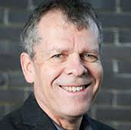
UNSW | Global Health

UNSW • Global Health
Professor Bryant is Director of the Traumatic Stress Clinic and Scientia Professor of Psychology at UNSW Sydney. His research has focused on identification of people at risk of mental health problems after trauma, early intervention strategies, treatment strategies for posttraumatic stress, and complicated grief. His research has resulted in many national and international awards. He was elected to Fellow of the Academy of Social Sciences in Australia in 2005, and he also holds an ARC Professorial Fellowship. Professor Bryant also works on many major national and international projects, including developing the Australian NHMRC PTSD treatment guidelines, web treatments for US troops returning from Iraq, tsunami survivors in Thailand, developing counselling programs for disaster survivors in the USA after Hurricane Katrina, and web-based treatments for complicated grief patients in the USA. YouTube interview December 2020 Richard Bryant, Scientia Professor of Psychology at UNSW Sydney in conversation with Paul Ramadge
Dr Katie Dawson |
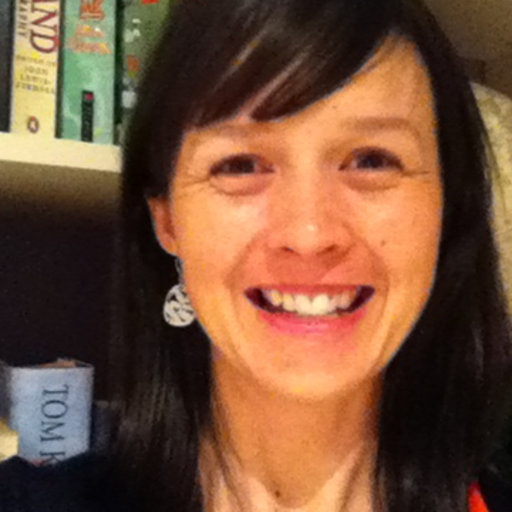
UNSW | Global Health

UNSW • Global Health
Katie Dawson is a Clinical Psychologist specialising in treatment of posttraumatic stress reactions and complicated grief in children and adults, and with particular interest in transcultural and global mental health. She currently holds a post-doctoral position at the University of NSW, Australia, where she leads research and treatment trials with children and adolescents from refugee backgrounds. She is also the child and adolescent program director for the Refugee Treatment and Recovery Program. She is currently consulting with the World Health Organization on several low-intensity psychological interventions for adults and youth living in humanitarian settings. She is passionate about improving access to evidence-based psychological interventions and capacity building of para-professionals in low- and middle-income countries.
Professor Neil Greenberg |
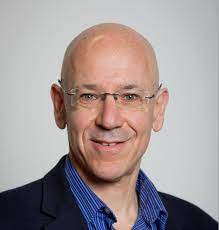
King's | Mental Health

King's • Mental Health
Professor of Defence Mental Health Professor Neil Greenberg is a consultant occupational and forensic psychiatrist. Neil served in the United Kingdom Armed Forces for more than 23 years and has deployed, as a psychiatrist and researcher, to a number of hostile environments including Afghanistan and Iraq. Neil is an advisor to the Academic Department of Military Mental Health and also runs March on Stress (www.marchonstress.com) which is a psychological health consultancy. Neil has published more than 200 scientific papers, book chapters and has presented to national and international audiences on matters concerning the psychological health of the UK Armed Forces, organisational management of traumatic stress and occupational mental health. He has been the Secretary of the European Society for Traumatic Stress Studies and the President of the UK Psychological Trauma Society. He is the Royal College of Psychiatrists’ Lead for Military and Veterans Health. He is also a trustee with Walking for the Wounded and an independent director of the Forces in Mind Trust.
Dr Mark Deady |
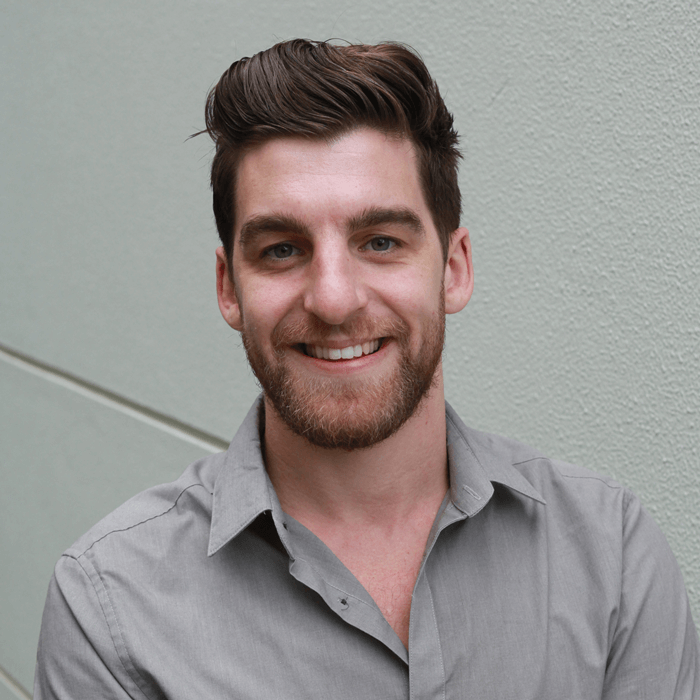
UNSW | Mental Health

UNSW • Mental Health
Dr Deady is postdoctoral research fellow working within the Workplace Mental Health Research Program. He has over twelve years research experience in the field of mental health and substance use disorders. In this time he has worked on a range of projects at a coronial, epidemiological, and clinical level, completing his PhD at UNSW in 2015. Dr Deady has extensive expertise in e-health project management, online service delivery and clinical trials. His primary research interest is in improving access to evidence-based care through technology and the translation of research into practice, particularly in vulnerable populations including young people and high-risk workforces. Dr Deady has been involved in the development and evaluation of multiple mental health smartphone apps and e-health technologies. He is currently funded through an iCare Foundation postdoctoral fellowship.
Associate Professor Sam Harvey |
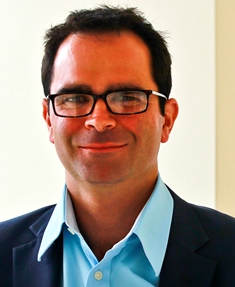
UNSW | Mental Health

UNSW • Mental Health
Dr Samuel Harvey, MBBS MRCGP MRCPsych FRANZCP PhD, leads the Workplace Mental Health Research Program at the School of Psychiatry, University of New South Wales. He is a psychiatrist and epidemiologist with a particular interest in the overlap between mental health, physical health and work. After initially working as a general practitioner, Dr Harvey trained in both general adult and consultation liaison psychiatry at the Maudsley Hospital and Institute of Psychiatry in London. He completed his PhD with the University of London, with a thesis titled “Does physical activity protect against common mental disorders?” In 2009, he was awarded the UK Royal Society of Medicine Young Epidemiologist of the Year award. Dr Harvey’s main research focus is the relationship between work and mental health. His research in this area considers the role work and workplace trauma may have in precipitating mental illness, the occupational outcomes of those already suffering from mental disorders, predictors of sickness absence and workplace based interventions for both the treatment and prevention of mental disorders. Together with Prof Mitchell and Prof Bryant, Dr Harvey is currently leading a five year program of research examining some of the specific mental health problems encountered by police, fire and ambulance officers. Further details about this program of research can be found at www.wmh.unsw.edu.au
Professor Simon Wessely |
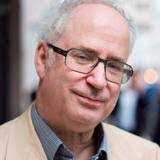
King's | Global Health

King's • Global Health
Simon Wessely is a psychiatrist and epidemiologist. He started his psychiatry training at the Maudsley in 1984, and joined King’s College School of Medicine, as it was then called in 1991. He has been at the Institute of Psychiatry, Psychology and Neurosciences, King’s College London, ever since. He did pre-clinical at Trinity Hall Cambridge, with a BA in History of Art, and then BM BCH at University College Oxford. His Masters and Doctorate are in epidemiology. He is a fellow of the Royal College of Physicians, Royal College of Psychiatrists and Academy of Medical Sciences. In 2021 he became a Fellow of the Royal Society (FRS). His is the first ever Regius Chair to be appointed at KCL, and the first Regius Chair of Psychiatry in this country. He established the King’s Centre for Military Health Research in 1996, and remains the Co-director, and since 2013 has been the Director of the PHE NIHR Health Protection Unit for Emergency Response and Preparedness, which has been very active during the COVID-19 crisis. He is a Past President of the Royal College of Psychiatrists and the Royal Society of Medicine. Between 2017 -19 he led the Independent Review of the Mental Health Act, which paved the way for new legislation in 2022. As of Jan 2021 he has 850 professional publications,. >41,000 citations: H index 100 (Scopus), 138 (Google).
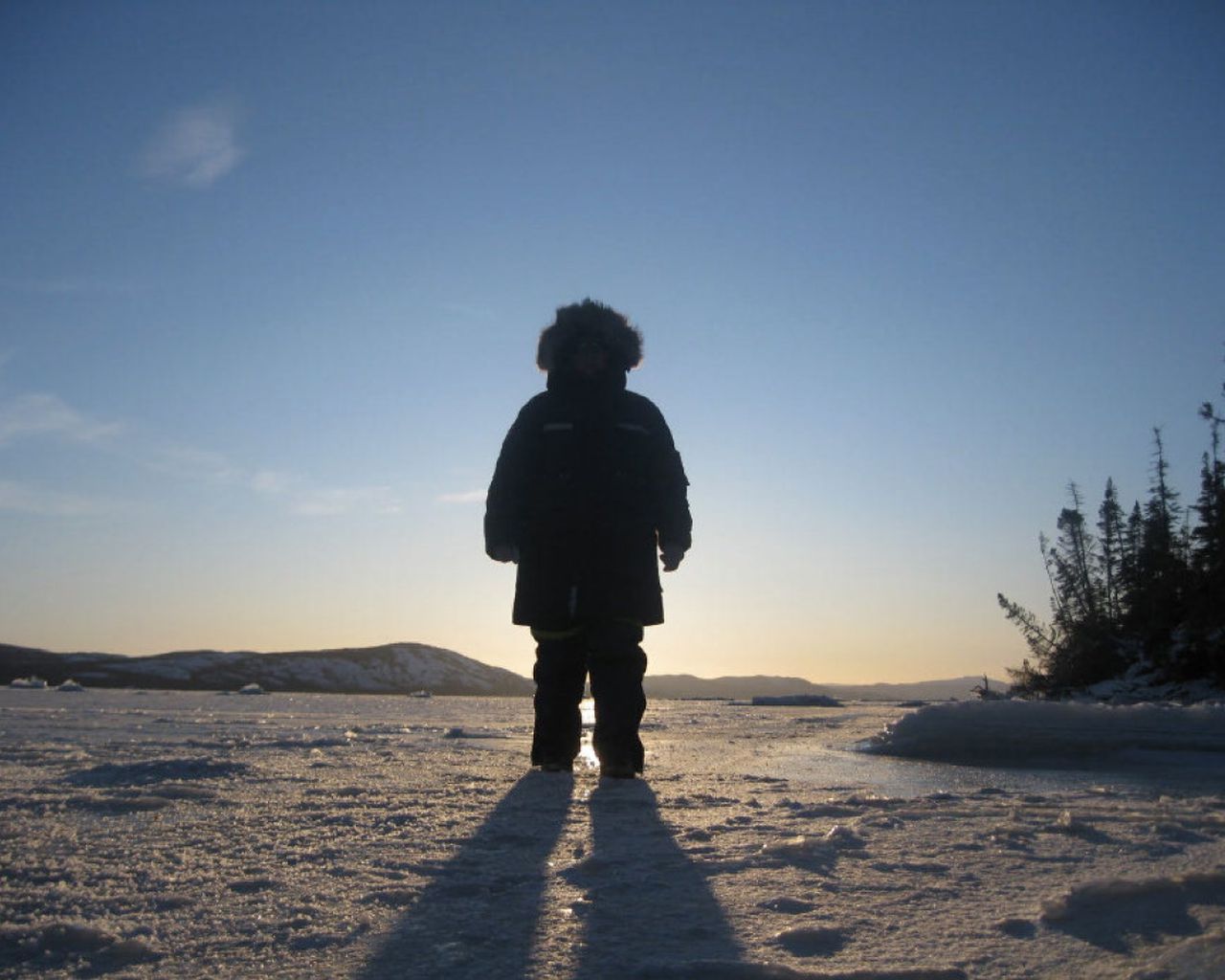
Indigenous peoples are particularly vulnerable to the hazards associated with climate change, leading to greater health inequalities. The purpose of this project is to combine community participatory techniques with epidemiological and political-ecological assessments to examine the effects of climate change and water related environmental degradation, and exclusion from management and governance of the local environment on mental health in First Nations people, particularly young people, in regions vulnerable to climate extremes.
The project aims to provide pilot data and protocol development for a larger multi-country study. The project will assess the optimum way to collect information on mental health indicators, ecological and hydrological indices including biodiversity, water, soil and air quality, and most importantly processes that exclude indigenous peoples from legal and regulatory procedures governing natural resources such as water.
As extreme events like drought and cyclones become more common, the project will develop protocols to facilitate community voice in the management and governance of the local environment. This project builds on work with First Nation communities in Dominica (KCL), Arizona (ASU), and western NSW (UNSW & Griffith University).
Professor Felicia Mitchell |
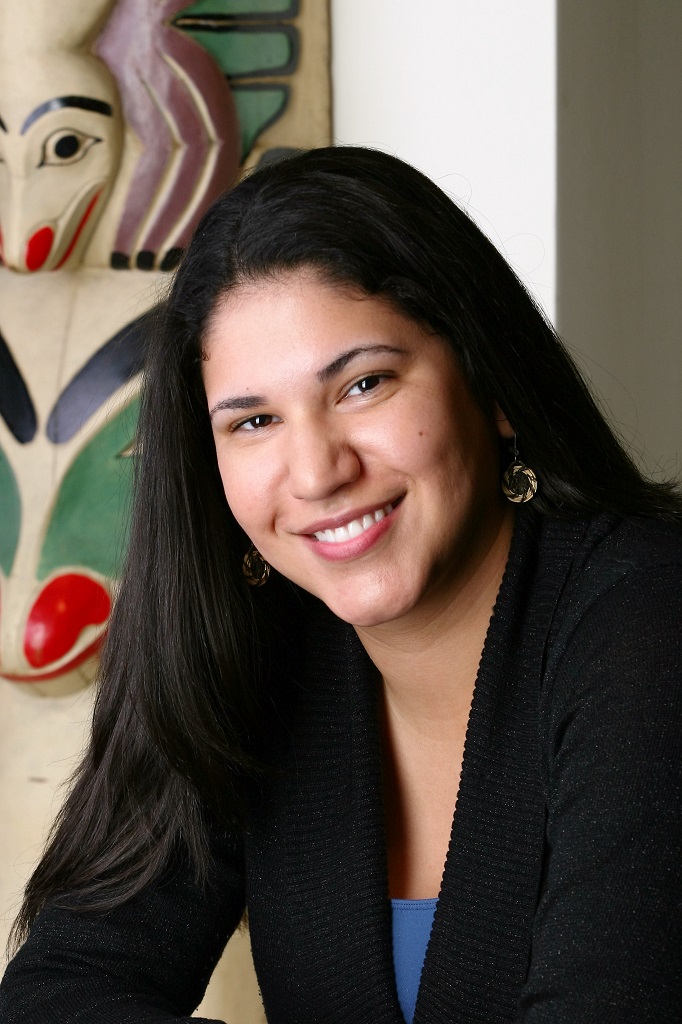
ASU | Social Justice

ASU • Social Justice
Dr. Felicia M. Mitchell joined the School of Social Work at Arizona State University in August 2016. Mitchell is committed to social justice for all oppressed and marginalized peoples and advocates for the advancement of environmental and health equity in communities of color. Her primary research interests focus on social determinants of health (inclusive of environmental determinants) and their impact on Indigenous health and well-being. Mitchell's work seeks to promote public and policy responsiveness to the health, social and anthropological dimensions of environmental change specifically related to water. Mitchell values community-based participatory research principles when partnering with communities and organizations around group-identified health and ecological concerns. Mitchell's secondary line of scholarship focuses on advancing social work education through critical reflection and engagement that seeks to dismantle settler-colonial standards in academia. Using a critical lens, she examines teaching and curriculum standards to increase accurate representations of historically underrepresented populations in the classroom and advocates for the eradication of oppressive higher education and research practices.
Professor Greg Leslie |

UNSW | Sustainability

UNSW • Sustainability
Professor Greg Leslie is a Professor in the School of Chemical Engineering at UNSW Sydney. He is the Director of the UNESCO Centre for Membrane Science and Technology and is engaged in research water and nutrient recycling by improving the performance of membranes used for desalination and recycling water and nutrients from municipal and industrial waste. In agriculture his development of a Reverse Osmosis Capable Drip Irrigation System, lets plants draw water through salt filters in irrigation pipes at their roots, using tiny amounts of energy naturally created by evaporation at their leaves.
Professor Richard Kingsford |
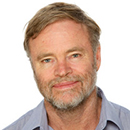
UNSW | Sustainability

UNSW • Sustainability
Professor Kingsford is Director of the Centre for Ecosystem Science at UNSW Sydney. Good management of river systems is dependent on good information of the ecological responses and a long history of monitoring the breeding of waterbirds in the Macquarie Marshes is producing dividends. The Macquarie Marshes is now established as the most important site in Australia for the breeding of colonial waterbirds (herons, egrets and ibis). The project monitors the impacts of changing water regimes on the breeding and abundance of waterbirds in the Macquarie Marshes. In October of each year Professor Kingsford conducts an aerial survey to estimate the abundance of waterbirds in eastern Australia. This project is one of the largest surveys of fauna in the world.

Natural disasters such as the 2020 Australian bushfires and floods in Bangladesh can cause monumental risks to human life, food supplies, energy and financial security. New technologies have the potential to be used more effectively in mitigating these risks. Unmanned Aerial Vehicles (UAVs) and Internet of Things (IoT) systems, linked via communication networks, can interact with Human-In-The-Loop (HITL) based Artificial Intelligence (AI) for safer and more economical monitoring in remote regions or wilderness. IoT devices such as camera-equipped UAVs otherwise known as drones have already proved critically effective in life threatening situation e.g. sea rescues and climate related natural disasters.
Using an interdisciplinary approach based on AI and HITL interactions, this project will deliver a pilot Risk Management-based Framework for Developing Intelligent Systems for Natural Disasters. In the context of the rapidly increasing numbers of connection points to the internet, this project will explore the effectiveness of using large numbers of IoT devices (with inexpensive, low-powered sensors) and UAVs, underpinned by multi-agent based AI and optimization algorithms for decision making. The architectural design using complex technology systems will assist in developing emerging technologically advanced systems to alleviate and tackle natural risks in new ways ensuring reliability, security, safety and resilience.
Professor Brian Gerber |
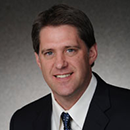
ASU | Global Health

ASU • Global Health
Brian J. Gerber is an associate professor at the College of Public Service and Community Solutions, Arizona State University, where he is director of the Emergency Management and Homeland Security program. Gerber received his Ph.D. from Stony Brook University (SUNY) in 2000. His research specialization areas include disaster policy and management, homeland security policy and administration, and environmental regulatory policy and has published such research in a number of academic journals. Prior to arriving at ASU, he served as executive director of the Buechner Institute for Governance at the University of Colorado Denver, as research director for the Stephenson Disaster Management Institute at Louisiana State University, was a research associate with West Virginia University’s Regional Research Institute, was a research fellow with the National Science Foundation’s “Next Generation of Hazards Researchers” program and has served as a subject matter expert on a variety of projects. He sits on the executive committee of the National Council for Public-Private Partnerships, was a five-year member of the Denver Board of Environmental Health. Gerber has extensive experience performing policy analysis and program evaluation work for state and local government agencies, as well as major national nonprofits engaged in disaster relief and recovery work.
Professor Raina MacIntyre |
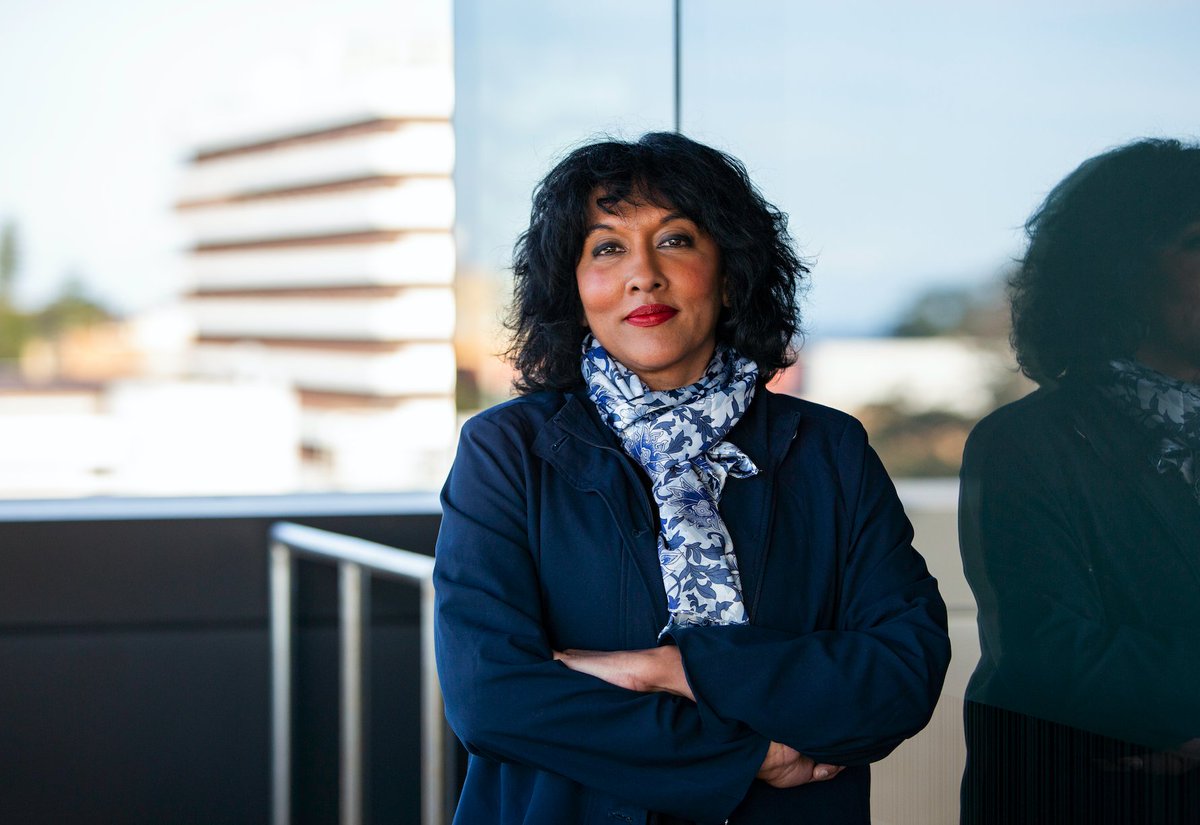
UNSW | Global Health

UNSW • Global Health
Professor Raina MacIntyre (MBBS Hons 1, M App Epid, PhD, FRACP, FAFPHM) is Head, School of Public Health and Community Medicine, UNSW and Professor of Infectious Diseases Epidemiology. She leads a research program in control and prevention of infectious diseases, spanning epidemiology, biosecurity, risk analysis, personal protective equipment, vaccinology, mathematical modelling, public health and clinical trials. Her global health research includes collaborations in India, Vietnam and China. She has over 300 peer reviewed publications in peer reviewed journals. She has received many awards including the Sir Henry Wellcome Medal and Prize from the Association of Military Surgeons of the US in 2007 for her work on bioterrorism, the Public Health Association of Australia’s National Immunisation Award in 2014, and the 2003 Frank Fenner Award for Research in Infectious Diseases. She has sat on numerous national and international expert committees and editorial boards in her field, including the US IOM. She currently heads a NHMRC Centre for Research Excellence in Epidemic Response and UNSW Vaccine and Infections Research Lab (UNSW-VIRL). She is also a founding director of ARM, Australia’s only national epidemic response network. She is an adjunct professor at Arizona State University and in this role is the UNSW lead in collaborative research and teaching in public health security within the PLuS Alliance.
Dr Elena Sitnikova |
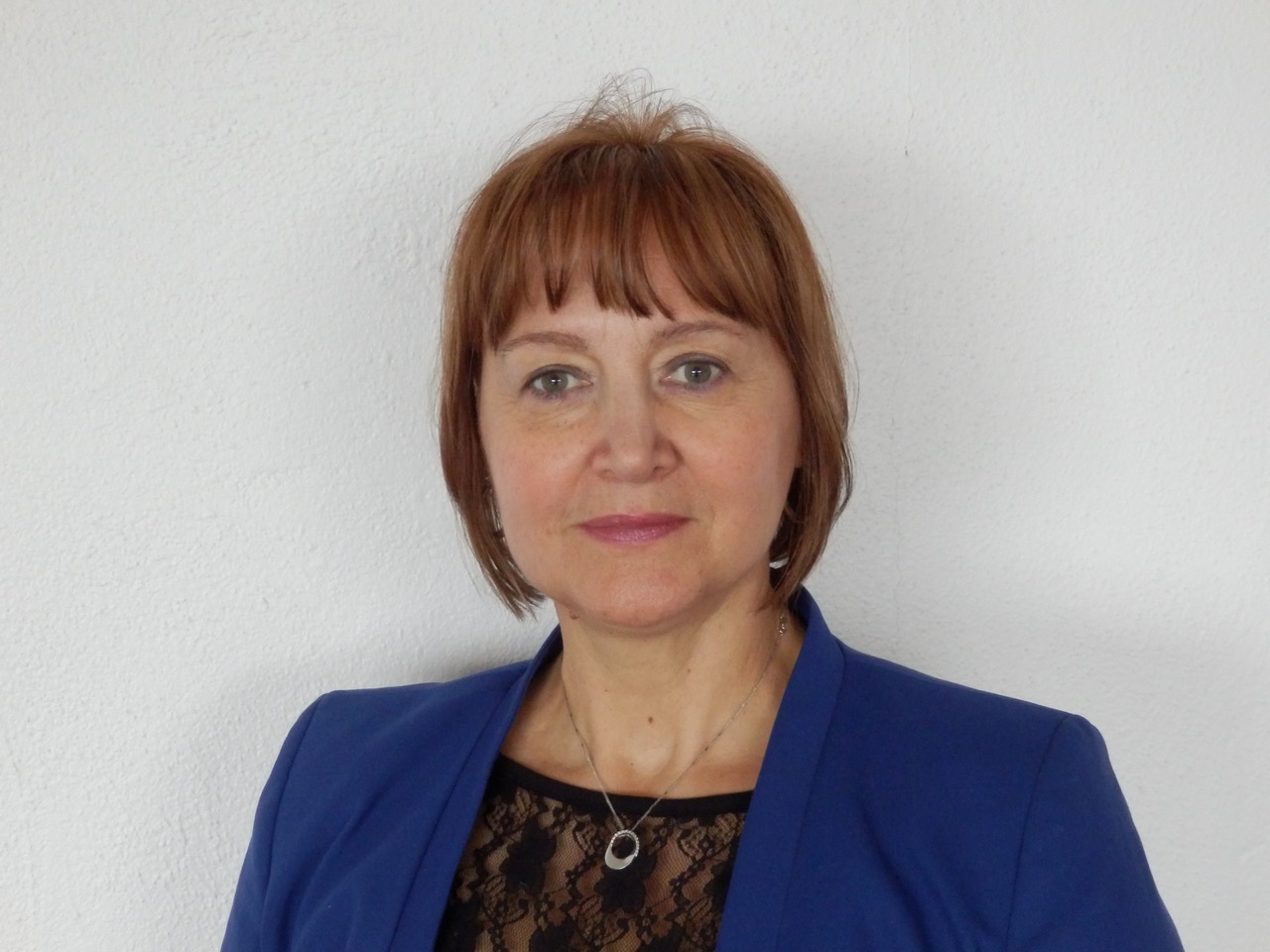
UNSW | Technology and Innovation

UNSW • Technology and Innovation
Dr Elena Sitnikova is an academic and researcher, and Program Coordinator for the Master of Cyber Security program at the University of New South Wales (UNSW) Canberra, at the Australian Defence Academy. This Master program is the fastest growing postgraduate program at UNSW Canberra with student numbers increasing from 60 to 350 between 2015 and 2018. In 2018, two courses that Elena coordinates, Cyber Governance and Information Assurance became the first PLuS Alliance offerings from UNSW Canberra to Arizona State University. Elena leads a Critical Infrastructure Protection research group and publishes widely in the area of intrusion detection (IDS) for SCADA control systems cyber security and industrial IoT. Elena is also involved in education research and publishes in the area of engineering and ICT education. Elena is an award winning academic, holding a national Australian Office for Learning and Teaching (OLT) Team Citation award for Outstanding Contributions to Student Learning.
Dr Kathleen Steinhöfel |
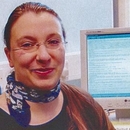
King's | Global Health

King's • Global Health
Dr Kathleen Steinhöfel is a Reader in Computer Science at King’s College London and an Adjunct Professor at UNSW Sydney. She is currently also working with the Francis Crick Institute, a biomedical research centre dedicated to finding new ways to prevent, diagnose and treat conditions such as cancer, heart disease and stroke, infections and neurodegenerative conditions. Dr Steinhöfel’s research interests include: Local Search Algorithms for Combinatorial Optimisation; Energy Landscape Analysis; Applied Algorithmics; Structure Prediction in Molecular Biology and Evolutionary Computation. She is also part of a PLuS Alliance research team seeking to identify risk factors associated with genetic mutations of an efficient human-to-human transmissible form of the highly pathogenic avian influenza (HPAI) H5N1 virus, commonly known as ‘bird flu.’
Professor Luca Viganò |
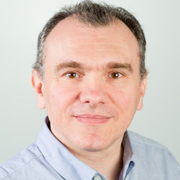
King's | Technology and Innovation

King's • Technology and Innovation
Professor Luca Viganò is a Professor in Computer Science (Software Modelling and Applied Logic). He is also ViceDean (International) for Natural and Mathematical Sciences, promoting international collaboration throughout the Faculty. His research interests include formal Methods for security, security logics, security testing, and labelled deduction for non-classical logics (modal logics, sub structural logics, etc.) and the combination of logics.

The Covid-19 pandemic has serious health implications for older adults. In addition to the risks of the disease itself, self-isolation limiting social contact with family and friends may have psychosocial impacts, such as reduced quality of life and loneliness, leading to depression and anxiety which can be substantial and long lasting. The impact of Covid-19, and the strategies implemented by the government and health care, vary considerably in the UK, US, and Australia. This multidisciplinary team will study and compare the psychological impacts, including quality of life, mental health, coping strategies, loneliness, resilience and cognition, of Covid19-related social isolation in elderly people across the three countries. In addition, we will perform a pilot feasibility-controlled trial to evaluate the use of a novel online psychological intervention focusing on resilience to improve wellbeing. The current project will capitalize on the active large UK PROTECT cohort as well as cohorts from ASU and UNSW, which allows a rapid and cost-efficient study. Understanding the psychosocial effects, and the feasibility and preliminary efficacy data from the intervention will put us in a very strong position to successfully apply for a larger grant to perform a large randomized controlled trial in the three countries.
Professor Dag Aarsland |
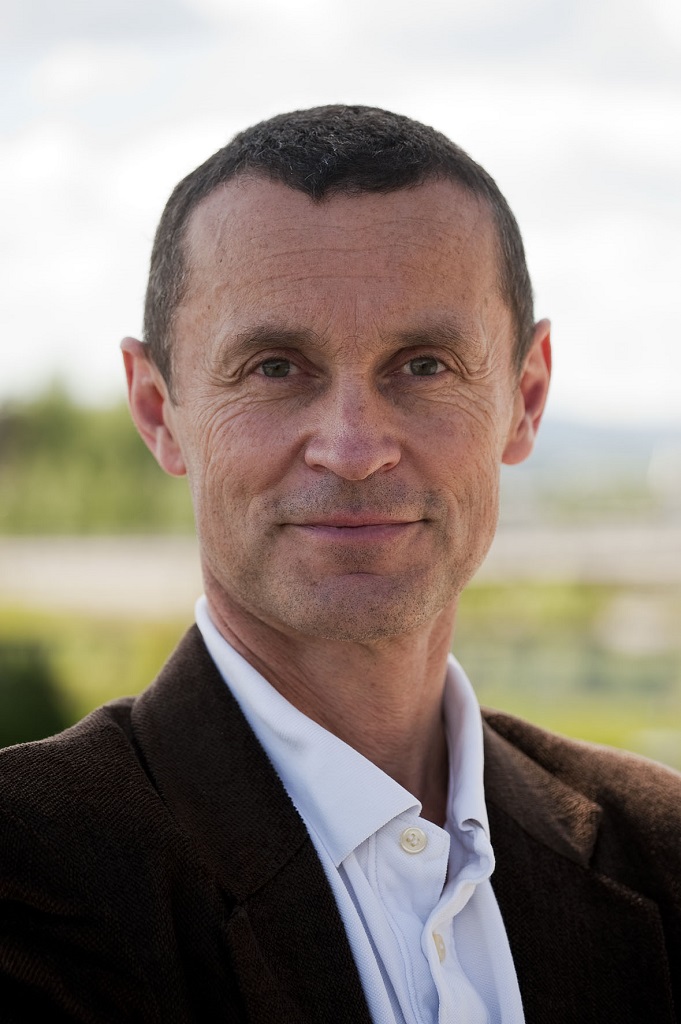
King's | Global Health

King's • Global Health
Professor Dag Aarsland joined the Institute of Psychiatry, Psychology and Neuroscience in January 2016, from Karolinska Institutet where he has been professor of clinical dementia research since 2011. Professor Aarsland is renowned throughout the world in the field of Lewy Body Dementia and Parkinson’s disease but has made contributions across the spectrum of old age psychiatry. He has worked in all aspects of old age psychiatry from basic science to applied health research. He is a natural team player and team-builder and will be a huge asset to the IoPPN and King’s College. Prof Aarsland contributes to new initiatives including dementia research in our forthcoming bid to renew the Biomedical Research Centre. He also carries out some clinical work within South London & Maudsley NHS Trust and assists in training the next cohort of old age psychiatrists. Professor Aarsland gained his degree in medicine in 1988 from the University of Oslo. At the same time as he was working as a clinician at Stavanger University Hospital he started to conduct research, gaining his PhD in 1996 with a thesis on language disorders among patients with Alzheimer's disease. In 1998 he became a specialist in psychiatry. From 2000 to 2002 he was a senior lecturer in geriatric psychiatry at the University of Bergen. He then became an adjunct professor, then professor of geriatric medicine at Bergen from 2006-2009. Between 2007 and 2009 he was a visiting professor at King's College in London, where he has held an honorary professorship since 2009. In 2009 Dag Aarsland became a professor of geriatric psychiatry at the University of Oslo. He is also a director of research at the University of Stavanger's Centre for Age-Related Medicine. Dag Aarsland was, for several years, director of the Norwegian Neuropsychiatric Association. He has been the recipient of numerous prizes, most recently in 2011 when he was awarded the Western Norway Regional Health Authority's Research Prize.
Professor Henry Brodaty |
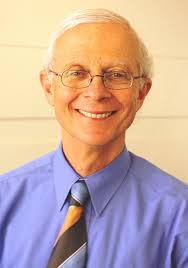
UNSW | Global Health

UNSW • Global Health
Professor Brodaty is a researcher, clinician, policy advisor and strong advocate for people with dementia and their carers. At UNSW Sydney, he is Scientia Professor of Ageing and Mental Health, Co-Director of the Centre for Healthy Brain Ageing, and Director, Dementia Centre for Research Collaboration. He has over 500 publications in refereed journals, is senior psychogeriatrician and Head of the Memory Clinic at POW Hospital. He was previously President of International Psychogeriatric Association, Chairman of Alzheimer’s Disease International, and President of Alzheimer’s Australia NSW and Australia. He is an officer of the Order of Australia and Ryman Prize winner.
Professor Richard Knopf |
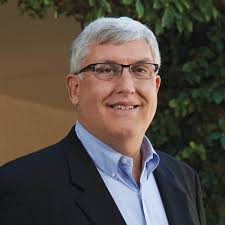
ASU | Community Development

ASU • Community Development
Richard C. Knopf serves as director of the Partnership for Community Development at Arizona State University and of the Osher Lifelong Learning Institute at Arizona State University. He is also a professor of community development in the School of Community Resources and Development within the Watts College of Public Service and Community Solutions at ASU. His expertise rests in advancing community quality of life by building innovative inter-generational partnerships among businesses, government, non-profit and community service organizations. Over the past decade, he has managed investments of more than $2.5 million by corporations, government, and local and national foundations in his ASU centers to promulgate this mission. Professor Knopf has authored more than 170 publications in community quality of life, including state-of-art reviews. In recognition of the global and local impact of his work, he was bestowed with the Community Development Achievement Award from the Community Development Society in 2014. He has also formed partnerships with the work of the UNESCO Institute for Lifelong Learning and its global “Learning Communities” initiative, and serves on the steering committee for the Global Age Friendly University Network. Much of Knopf’s teaching and research has focused on the role of community development in life quality enhancement and economic growth. His specialty areas include: healthy aging and lifespan development, inter-generational programming, community building, community development theory and practice, community needs and assets assessment, community justice and marginalization, civic engagement and volunteerism, strategic planning and visioning, community well-being, community special events management, regional planning, program evaluation and assessment, non-profit capacity building, organizational marketing and promotions, natural resources policy, university-community partnership formation, grant writing, and public philanthropy.

Institutions face immense challenges during sudden global health crises, such as the one triggered by COVID- 19. Perceived uncertainty around such crises is aggravated by misinformation and fake news, which are disseminated through a wide range of social media channels. In thier response to misinformation and fake news, institutions face challenges around escalating dynamics of public relations - and to date little is known how institutions can effectively respond in such crises in order to guarantee social cohesion and build resilience within an increasingly fragmented public sphere. With this research project, we aim to: a) map these tensions, which will help to identify the various cycles that lead to an escalation of polarities; and b) identify institutional responses that either aggravate or break the underlying vicious cycles. We will use quantitative methods to analyze polarization of public reaction to the COVID-19 crisis by focusing on data from Twitter, and qualitative methods to study institutional responses from government agencies/regulators from the UK, USA, Australia, and Hong-Kong for comparative analysis. Overall, this study contributes to a better understanding of the responses and perceptions of the general public during a pandemic health crisis, as well as to effective crisis response by regulators.
Associate Professor Josh Keller |
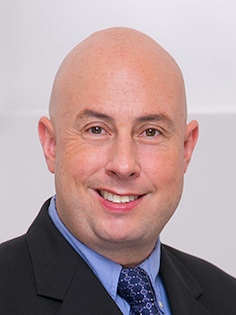
UNSW | Global Health

UNSW • Global Health
Associate Professor Josh Keller's primary research interest is studying how managers respond to strategic paradoxes, including how to cooperate and compete, how to learn new endeavours and take advantage of knowledge of existing endeavours, and how to be both global and local. He also examines cross-cultural differences in approaches to paradoxes. His work has been published in multiple top-tier managerial journals, including Academy of Management Journal, Organization Science, Organization Studies, Human Relations and Organizational Behaviour and Human Decision Processes. As the Program Director for the Master of International Business program, Associate Professor Josh Keller oversees curriculum and engagement issues for the program. He is also actively involved in ensuring that international topics are integrated into School of Management student learning at undergraduate and post-graduate levels.
Dr Michael Etter |

King's | Global Health

King's • Global Health
Michael Etter has a PhD in organization studies and cultural theories from the University of St. Gallen, Switzerland. He has worked as assistant professor at Copenhagen Business School and as Marie-Curie Research Fellow at Cass Business School, City, University of London. His work has appeared in academic journals, such as Academy of Management Annals, Academy Management Review, Journal of Management Studies, and Business and Society. Michael Etter has received multiple awards for his research and teaching excellence, as well as several research grants from prestigious funding institutions, such as the British Academy. Michael Etter is interested in the construction of social evaluation of new and established firms, such as organizational reputation and legitimacy, in the new media landscape, which is shaped by new information and communication technologies (ICT). He looks at strategies, which new and established firms use to establish favourable social judgments in the digital economy. The role corporate social responsibility is thereby prevalent in his work.
Professor Jonathan Bundy |
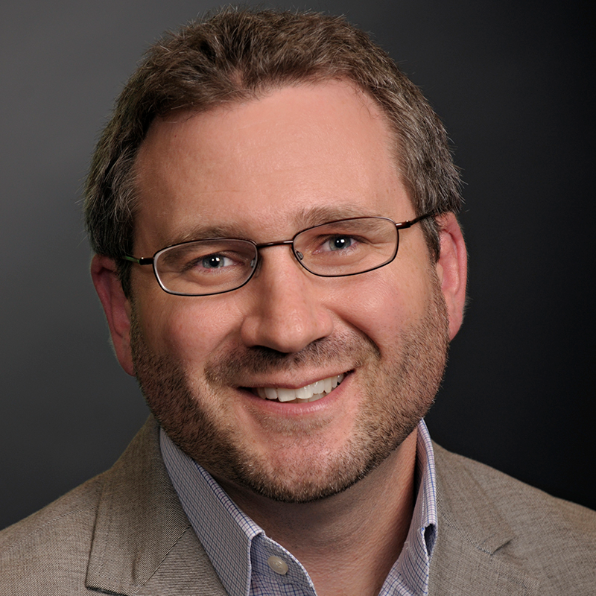
ASU | Global Health

ASU • Global Health
Jonathan Bundy joined the W. P. Carey School of Business in 2016. Professor Bundy’s research takes a behavioral approach to strategic management and focuses on the social and cognitive forces that shape organizational outcomes and behavior. He specifically investigates crisis and impression management, corporate reputation and other social evaluations, firm-stakeholder relationships, and corporate governance. His work has appeared in field-leading journals, including the Academy of Management Annals, Academy of Management Review, Administrative Science Quarterly, Journal of Management, Organization Science, Personnel Psychology, and Strategic Management Journal. He received his bachelor’s and master's degrees from the University of New Mexico and his doctorate in strategic management and organization theory from the University of Georgia. Professor Bundy has been commended for his contributions to research, most recently winning the ASQ Award for Scholarly Contribution (2019). He has also won multiple reviewer awards for his service to various journals and conferences. He is currently serving as an Associate Editor at Academy of Management Review. He also serves as an International Research Fellow with the Oxford University Centre for Corporate Reputation.
Dr Jonathan Schad |
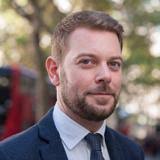
King's | Global Health

King's • Global Health
Jonathan Schad is a Lecturer in Strategy and Organisation Theory at King’s Business School. His research focuses on how organizations can manage fundamental competing demands, such as stability and change, short-term and long-term, and profit and purpose. To understand such tensions better, Jonathan draws on and contributes to paradox theory. His work is linked to the grand challenges of our time, such as managing plural stakeholder demands and changes in the environment. Currently, he is very much interested in how the digital age affects organizations and society. Jonathan's work has been published in strategy and organization theory outlets such as the Academy of Management Annals, the Journal of Management Studies, Strategic Organization, and in The Oxford Handbook of Organizational Paradox (Oxford University Press). His publications have been impactful in the field of organization theory and Jonathan has won large research grants connected to his work. He reviews for prestigious journals in the field (e.g., Academy of Management Journal, Organization Science, Journal of Management Studies).
This research will develop, implement, and evaluate the world’s first comprehensive mental health framework for emergency service personnel. It aims to fill an urgent gap expressed by police, firefighting, paramedic, and rescue agencies around the world to enhance the mental health of their personnel, and maintain the operational efficiencies of these critical organisations. This project will develop and evaluate training programs for supervisors, implement app-based programs to enhance resilience in personnel, use smartphone technology to track shifts in mental health, and provide self-paced and individualised management programs for mental health issues. The framework addresses urgent security issues faced by the UK, US, and Australian governments, and has significant potential applications for managing mental health in many populations beyond emergency service organisations.
Professor Richard Bryant |

UNSW | Global Health

UNSW • Global Health
Professor Bryant is Director of the Traumatic Stress Clinic and Scientia Professor of Psychology at UNSW Sydney. His research has focused on identification of people at risk of mental health problems after trauma, early intervention strategies, treatment strategies for posttraumatic stress, and complicated grief. His research has resulted in many national and international awards. He was elected to Fellow of the Academy of Social Sciences in Australia in 2005, and he also holds an ARC Professorial Fellowship. Professor Bryant also works on many major national and international projects, including developing the Australian NHMRC PTSD treatment guidelines, web treatments for US troops returning from Iraq, tsunami survivors in Thailand, developing counselling programs for disaster survivors in the USA after Hurricane Katrina, and web-based treatments for complicated grief patients in the USA. YouTube interview December 2020 Richard Bryant, Scientia Professor of Psychology at UNSW Sydney in conversation with Paul Ramadge

Relatively few people across the world achieve a ‘good death’ – one that gives them dignity, choice and support to address their physical, personal, social and spiritual needs. Better planning for end-of-life requires an understanding of the broad timeframes, trajectory of illness and needs for services. This project is a world-first, applying trajectory mining methods to large-scale linked health and social care data to characterise and classify end-of-life care trajectories. The research team are using a unique dataset linking multiple sources of routinely collected data for more than 26,000 Australian decedents in order to: identify the most frequent and important trajectories; investigate how these trajectories relate to end-of-life outcomes such as ‘a good death’; predict the trajectory for a given patient; and model ‘what-if’ scenarios.
Professor Irene Higginson |
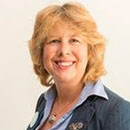
King's | Global Health

King's • Global Health
Professor Irene J Higginson is Head of Department, Head of Division and Director of Cicely Saunders Institute, the first purpose built institute for research into palliative care. Professor Higginson has research interests and publications in the following areas: quality of life and outcome measurements, evaluation of palliative care especially of new services and interventions, epidemiology, clinical audit, effectiveness, psychosocial factors and care, symptom assessment, cachexia/anorexia, and elderly care.
Dr Richard Harding |

King's | Global Health

King's • Global Health
Dr Harding is a Reader in Palliative Care at King's College London and has a number of collaborations with African palliative care leaders that has brought change in outcome measure for research and clinical practice as well has significantly grown the evidence base. Dr Harding’s research areas include outcome measurement and tool validation, HIV/AIDS, heart failure, family caregivers, sub-Saharan Africa, Global Health, audit and quality improvement, mixed methods, intervention development and testing.
Professor Chitta Baral |
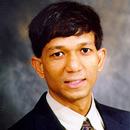
ASU | Technology and Innovation

ASU • Technology and Innovation
Dr. Baral is Professor and Chair of the School of Computing and Informatics Professor at Ira A. Fulton School of Engineering and Department of Biomedical Informatics, Biomedicine. Dr. Baral’s expertise is in Bioinformatics Knowledge representation, reasoning and declarative problem solving. A systematic approach to designing and analyzing autonomous agents.
Professor Louisa Jorm |
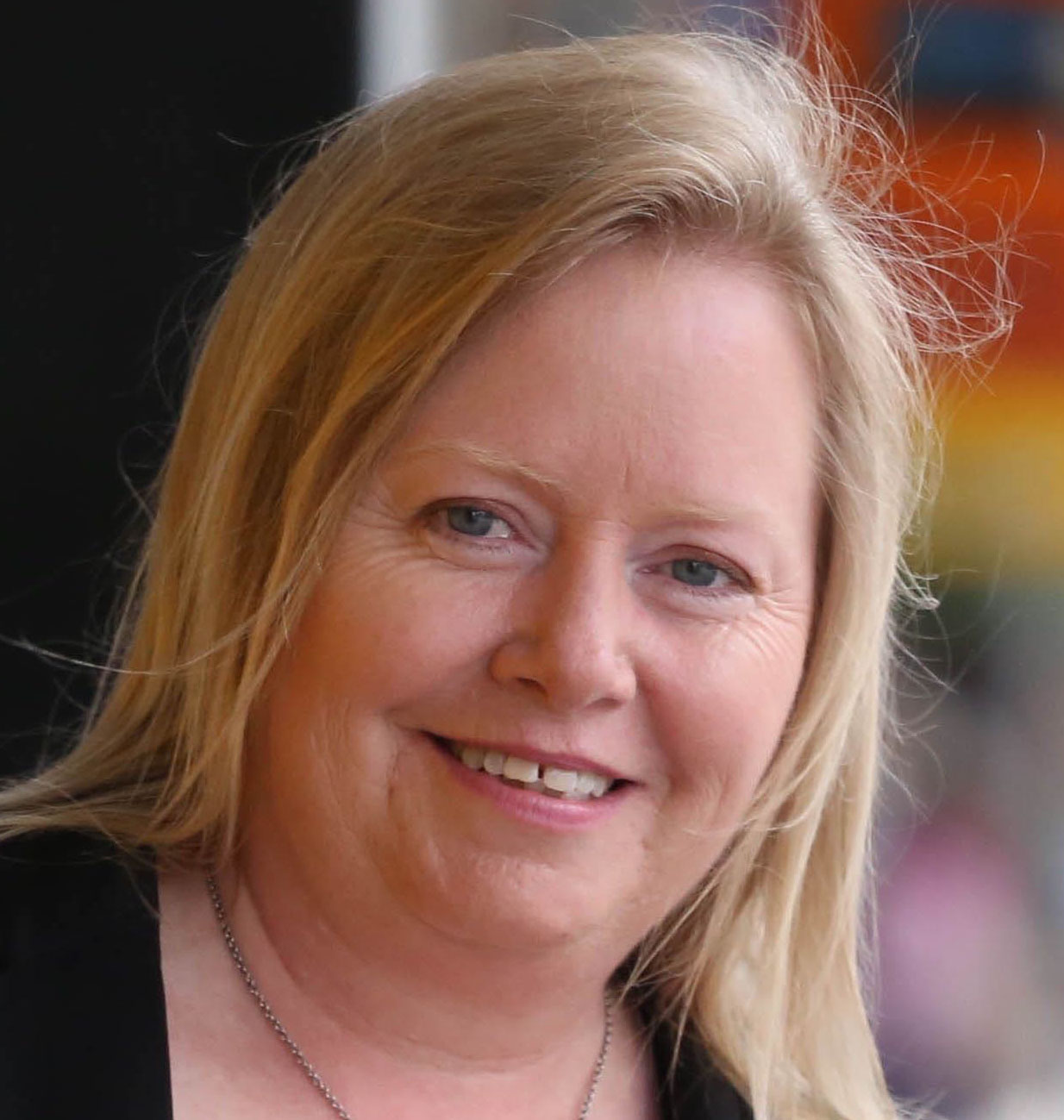
UNSW | Global Health

UNSW • Global Health
Professor Louisa Jorm is Foundation Director of the Centre for Big Data Research in Health at UNSW. She is an Australian and international leader in research using large-scale linked health data, including hospital inpatient, mortality, Medicare and cohort study data. She brings a unique combination of senior leadership experience both within and outside government and high-level technical expertise in epidemiologic methods, data linkage, biostatistics, use of large administrative data sets, methods for analysis of longitudinal and cohort study data and facilitating the policy and practice uptake of research. In the last 5 years she has published more than 60 scientific papers and been awarded more than AUD10 million in research funding. She has played a key role in building infrastructure and capacity for health ‘big data’ research in Australia, including the New South Wales (NSW) Centre for Health Record Linkage, the Secure Unified Research Environment (SURE) data laboratory, the UNSW E-Research Institutional Cloud Architecture (ERICA) and the NSW Biostatistical Officer Training Program. She is a high profile advocate for more and better use of routinely collected health data and has contributed to driving related policy changes in Australia, through numerous advisory roles to government.
Professor Alex Broom |
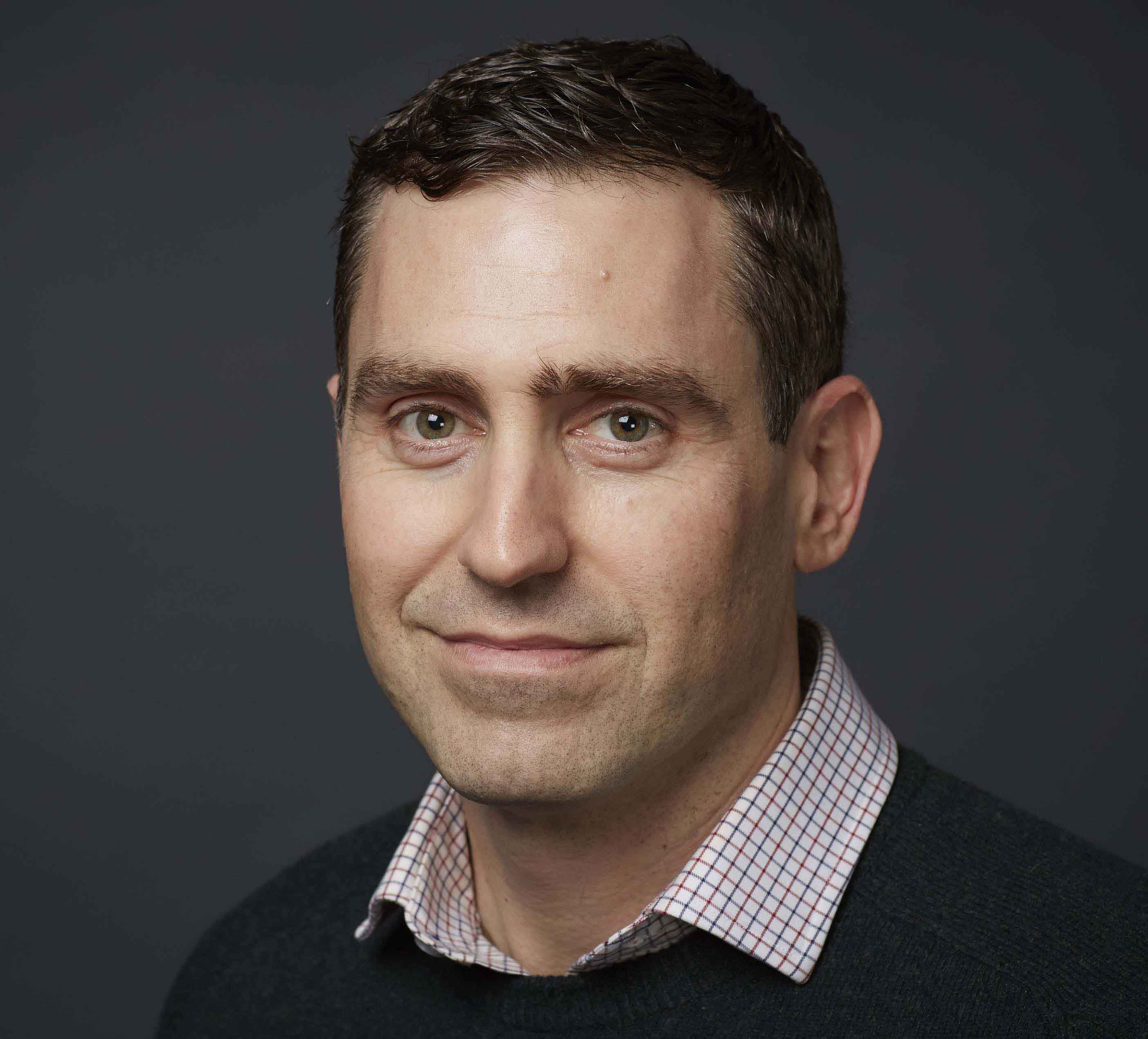
UNSW | Global Health

UNSW • Global Health
Alex Broom is Professor of Sociology in the School of Social Sciences at UNSW Australia. He specialises in the sociology of health and illness, with a current focus on issues related to: illness experiences; the therapeutic encounter; experiences of suffering, healing and survivorship; and, the moralities of care and caregiving. His work extends across a variety of cultural contexts, with current projects being based in Australia, Britain, India and Brazil. Over the course of the last decade, his international research contribution is distinguished by its interdisciplinary focus and emphasis on translational outcomes as produced through rigorous sociological enquiry. His research program, with its focus on end-user relevance, engagement and translation to practice, involves regular partnership with community groups, private industry and government-funded organisations, to facilitate knowledge synthesis and policy and practice change. He has published over 200 publications including 12 books, and is an investigator on over AU$8 million in competitive research grants. Recent books include Men's Health: Body, Identity and Social Context (Wiley-Blackwell, 2009) and Health, Culture and Religion in South Asia (Routledge, 2011), Evidence-based healthcare in context (Ashgate, 2012), Gender and Masculinities: Histories, Texts and Practices in India and Sri Lanka (Routledge, 2013) and Dying: A Social Perspective on the End of Life (Ashgate/Routledge, 2015). He presently convenes the 'Health Stream' within UNSW Arts and Social Sciences’ Practical Justice Initiative.

Regenerative Medicine is the field of science that aims to promote regrowth of diseased or injured tissues, for example, restoring nerve connectivity after a spinal cord injury. It has immense promise to impact a range of health conditions and disabilities, yet repair and regeneration currently fall short of their full potential. In order for regrowth to take place, time and location-dependent changes occur in the material surrounding tissue cells and these changes act as signals to direct the cells to regenerate and/or move to the correct location. Current systems used to model and study this process do not accurately reflect the changes that occur naturally during regeneration, for example, during human development or limb regeneration in lizards. Bringing together expertise in stem cell biology, biochemistry, chemistry, materials science, and biomedical and chemical engineering, this research aims to develop a new model that more closely resembles the natural process of regenerations, which could improve the possibility of tissue regeneration. The impact of such innovation is far-reaching, from fundamental molecular studies to therapeutic regenerative strategies.
Professor Sarah Stabenfeldt |
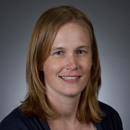
ASU | Global Health

ASU • Global Health
Dr. Sarah Stabenfeldt received her B.S. in Biomedical Engineering from Saint Louis University and her Ph.D. in Bioengineering from Georgia Institute of Technology. She was awarded an NIH NRSA pre-doctoral fellowship for her doctoral thesis research on developing neural tissue engineering therapies for traumatic brain injury. As a NIH post-doctoral fellow at Emory University School of Medicine and Georgia Tech, she investigated fibrin-derived peptide-protein binding interactions, designing fibrin-based wound healing therapeutics. She joined Arizona State University’s School of Biological and Health Systems Engineering as an Assistant Professor in 2011 and leads her research team in developing regenerative medicine strategies for acute neural injury. Since joining ASU, Sarah has been awarded the Arizona Biomedical Research Consortium Early Stage Investigator Award, the NIH Director’s New Innovator Award, and NSF CAREER Award.
The highly pathogenic avian influenza (HPAI) virus poses a tremendous threat to population health. Commonly known as ‘bird-flu’, the virus has infected thousands of humans worldwide since 2003. Bird flu only infects humans in close contact with poultry or birds, and does not currently spread between people. However, there is a risk that strains of the virus such as H5N1 or H7N9 could mutate into a form that is readily transmissible between humans, creating a pandemic that could kill millions of people around the world. This collaboration seeks to identify risk factors associated with genetic mutations of this virus, using multi-layered risk analysis models that incorporate genetic, spatial and epidemiologic risk factors. This could provide early warning of an emergent pandemic or a high risk mutant, and would help health and agriculture agencies determine strategies to reduce the likelihood of such a pandemic occurring.
Professor Matthew Scotch |
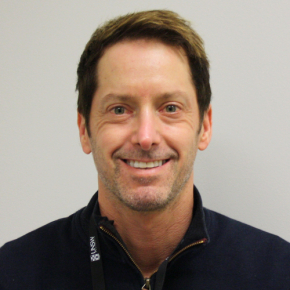
ASU | Global Health

ASU • Global Health
Matthew Scotch is Associate Professor in the College of Health Solutions and Assistant Director of the Biodesign Center for Environmental Health Engineering at ASU. He is also Senior Visiting Fellow at UNSW’s Kirby Institute where he did his sabbatical with Dr. Raina MacIntyre (PLuS Fellow) in 2018. His focus within PLuS is in global health and biosecurity of infectious diseases including influenza and SARS-CoV-2. He has collaborated with PLuS Fellows Raina MacIntyre (UNSW) and Kathleen Steinhofel (KCL) on avian influenza risk. This work has been funded by the PLuS Alliance through seed grants and accelerator awards. His research focuses on virus phylogeography to study the spread of RNA viruses with a focus influenza A viruses. His lab group is also interested in the molecular epidemiology of RNA viruses including the amplification and next-generation sequencing (NGS) of influenza A genes for studying spread among avian and human hosts.
Professor Raina MacIntyre |

UNSW | Global Health

UNSW • Global Health
Professor Raina MacIntyre (MBBS Hons 1, M App Epid, PhD, FRACP, FAFPHM) is Head, School of Public Health and Community Medicine, UNSW and Professor of Infectious Diseases Epidemiology. She leads a research program in control and prevention of infectious diseases, spanning epidemiology, biosecurity, risk analysis, personal protective equipment, vaccinology, mathematical modelling, public health and clinical trials. Her global health research includes collaborations in India, Vietnam and China. She has over 300 peer reviewed publications in peer reviewed journals. She has received many awards including the Sir Henry Wellcome Medal and Prize from the Association of Military Surgeons of the US in 2007 for her work on bioterrorism, the Public Health Association of Australia’s National Immunisation Award in 2014, and the 2003 Frank Fenner Award for Research in Infectious Diseases. She has sat on numerous national and international expert committees and editorial boards in her field, including the US IOM. She currently heads a NHMRC Centre for Research Excellence in Epidemic Response and UNSW Vaccine and Infections Research Lab (UNSW-VIRL). She is also a founding director of ARM, Australia’s only national epidemic response network. She is an adjunct professor at Arizona State University and in this role is the UNSW lead in collaborative research and teaching in public health security within the PLuS Alliance.
Dr Kathleen Steinhöfel |

King's | Global Health

King's • Global Health
Dr Kathleen Steinhöfel is a Reader in Computer Science at King’s College London and an Adjunct Professor at UNSW Sydney. She is currently also working with the Francis Crick Institute, a biomedical research centre dedicated to finding new ways to prevent, diagnose and treat conditions such as cancer, heart disease and stroke, infections and neurodegenerative conditions. Dr Steinhöfel’s research interests include: Local Search Algorithms for Combinatorial Optimisation; Energy Landscape Analysis; Applied Algorithmics; Structure Prediction in Molecular Biology and Evolutionary Computation. She is also part of a PLuS Alliance research team seeking to identify risk factors associated with genetic mutations of an efficient human-to-human transmissible form of the highly pathogenic avian influenza (HPAI) H5N1 virus, commonly known as ‘bird flu.’

This research project facilitates interaction on the topic of 'Human Health Implications of Intentional and Non-intentional Nanoparticle Ingestion, Injection, Inhalation and Endogenous Formation’. The project is multifaceted with activities in the areas of 1) Non-intentional ingestion/inhalation of nanoparticles such as those associated with coal workers’ pneumoconiosis (CWP); 2) Intentional ingestion/inhalation/injection of nanoparticles such as those of silver that are marketed (with FDA approval) as a “health supplement; 3) Endogenous formation of nanoparticles within the body with particular focus on crystalline iron oxides such as magnetite, the occurrence of which has been associated with Alzheimer’s Disease, and 4) New approaches to communication about nanoparticle exposure. External funding for some of these activities has been raised from organisations including the Australian Coal Research program (ACARP) and the Australian Synchrotron with more substantial funding being sought through organisations such as the Wellcome Trust.
Professor David Waite |
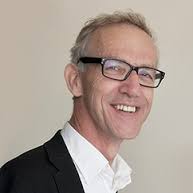
UNSW | Sustainability
Scientia Professor David Waite from the UNSW School of Civil and Environmental Engineering is leading a team working at the intersection of nanotechnology, materials science and environmental engineering, developing new composite materials made from silver nanoparticles anchored onto the low-cost silica from rice husk ash (RHA). When burned, the ash from rice husks has a high concentration of silica, which is thought to be an excellent supporting material for ultra-fine silver nanoparticles. These nanoparticles have become well-known for their anti-bacterial properties and applications in water treatment, but at the size where these particles are most effective (diameters less than 20 nm), they have a tendency to aggregate, which decreases their disinfecting potential. The rice husk ash prevents aggregation of the silver nanoparticles, the rice husk ash support slows down the release time of dissolved silver, enhancing the long-term anti-bacterial applications of the particles. The technology is ideal for supplying clean, affordable drinking water to remote communities or for providing purified water after a disaster or emergency.

UNSW • Sustainability
Scientia Professor David Waite from the UNSW School of Civil and Environmental Engineering is leading a team working at the intersection of nanotechnology, materials science and environmental engineering, developing new composite materials made from silver nanoparticles anchored onto the low-cost silica from rice husk ash (RHA). When burned, the ash from rice husks has a high concentration of silica, which is thought to be an excellent supporting material for ultra-fine silver nanoparticles. These nanoparticles have become well-known for their anti-bacterial properties and applications in water treatment, but at the size where these particles are most effective (diameters less than 20 nm), they have a tendency to aggregate, which decreases their disinfecting potential. The rice husk ash prevents aggregation of the silver nanoparticles, the rice husk ash support slows down the release time of dissolved silver, enhancing the long-term anti-bacterial applications of the particles. The technology is ideal for supplying clean, affordable drinking water to remote communities or for providing purified water after a disaster or emergency.
Professor Paul Westerhoff |
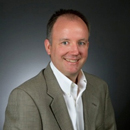
ASU | Social Justice

ASU • Social Justice
Dr. Paul Westerhoff is a full professor in the Civil, Environmental and Sustainable Engineering program in the School of Sustainable Engineering and the Built Environment, which is part of the Ira A. Fulton Schools of Engineering at Arizona State University and currently serves as a Senior Advisor on Science and Engineering to the ASU Provost. Westerhoff obtained a Ph.D. from the University of Colorado at Boulder, a MS from University of Massachusetts and BS from Lehigh University. Westerhoff leads research funded by AWWARF, USEPA, NSF, DOD and local organizations investigating the fate of nanomaterials in water, use of nanomaterial-based technologies for water and reuse treatment, reactions and fate of oxo-anions (bromate, nitrate, arsenate) during water treatment, characterization, treatment and oxidation of natural organic matter in watersheds, formation of disinfection by-products, removal of taste and odor micropollutants. Westerhoff has received several research awards including the 2013 AEESP/Arcadis Frontier in Research Award, 2005 ASCE Walter L. Huber Research Award and the 2006 WEF Paul L. Busch Award.

Until recently, the experience and outcomes of health care have been conceptualised and measured from the perspective of clinicians or researchers. While important, these measures may obscure issues that are of central relevance to the experience of the patient. This project develops a new patient reported outcomes measure (PROM) for people with a history of injecting drugs who are undertaking treatment for hepatitis C. This change of perspective seeks to position the service user as central to measurement and evaluation of health services and is especially important for acknowledging and understanding the experiences of patient groups experiencing significant marginalisation from mainstream services.
Professor Carla Treloar |
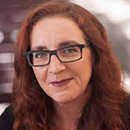
UNSW | Social Justice

UNSW • Social Justice
Professor Treloar is the Director of the Centre for Social Research in Health at UNSW Sydney. She has training in Social and Health Psychology and has almost 20 years of experience in public health, health services and translational research. She is one of the leading international experts in social research in hepatitis C prevention, care and treatment and a leading social scientist working in the field of hepatitis C prevention, care and treatment. She has published extensively on the decisions about hepatitis C treatment and barriers/facilitators of engaging in care including collaborative projects evaluating a number of hepatitis C treatment/care models. She has extensive involvement with policy makers and community groups around issues of access to HCV care and treatment and the participation of people who inject drugs. Carla is the Chair of PLuS Alliance Fellows at UNSW.

An important contribution to a vexing public health issue, this project develops evidence- based, culturally appropriate solutions for the prevention of arsenic related illness in communities using groundwater in the Mekong. It critically examines available information on the link between cumulative exposure, diet and nutrition and disease onset, to determine if diet in the Mekong has been responsible for the prevention of morbidity observed in other communities with comparable levels of arsenic exposure. This research team offers collective expertise in epidemiology, water governance, metal toxicity, nutrition, hydrogeology, water treatment, and most importantly humanitarian engineering, and has successfully engaged local and international NGOs.
Professor Mark Henderson |
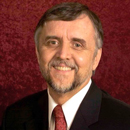
ASU | Technology and Innovation

ASU • Technology and Innovation
Mark Henderson is professor of Engineering at Arizona State University at the Polytechnic campus. He received the MS degree in biomechanical engineering and the Ph.D. in mechanical engineering (CAD) from Purdue University. Henderson was named a Presidential Young Investigator from 1985-90 and is co-author of the textbook, Computer-Integrated Design and Manufacturing. His major research includes 60 papers in computer-aided design and global engineering and he serves on the editorial board of The Journal of Computer-Aided Design (CAD). Henderson is on the founding faculty of an engineering program at ASU's Polytechnic campus. He is also co-founder of the InnovationSpace, a new approach to transdisciplinary product development and entrepreneurship. Henderson's interests extend across typical disciplinary boundaries and include global design teams, innovative product design, computer graphics, CAD and rapid prototyping.
Dr Naho Mirumachi |
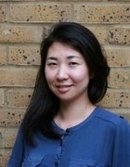
King's | Sustainability

King's • Sustainability
Dr Naho Mirumachi is Lecturer in Geography at the Department of Geography. She has research interests in the politics and governance of the environment, particularly water. Dr Mirumachi has fieldwork experience in the Orange-Senqu River basin in Southern Africa, Ganges River basin in South Asia, and the Mekong River basin in Southeast Asia, and most recently Tanzania.
Professor Greg Leslie |

UNSW | Sustainability

UNSW • Sustainability
Professor Greg Leslie is a Professor in the School of Chemical Engineering at UNSW Sydney. He is the Director of the UNESCO Centre for Membrane Science and Technology and is engaged in research water and nutrient recycling by improving the performance of membranes used for desalination and recycling water and nutrients from municipal and industrial waste. In agriculture his development of a Reverse Osmosis Capable Drip Irrigation System, lets plants draw water through salt filters in irrigation pipes at their roots, using tiny amounts of energy naturally created by evaporation at their leaves.



